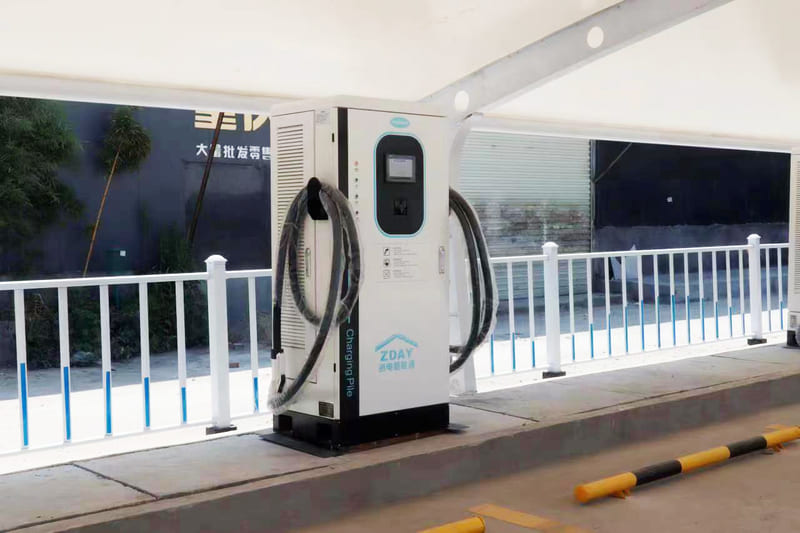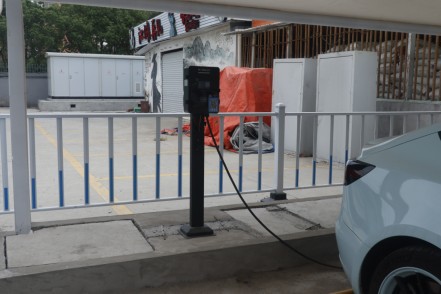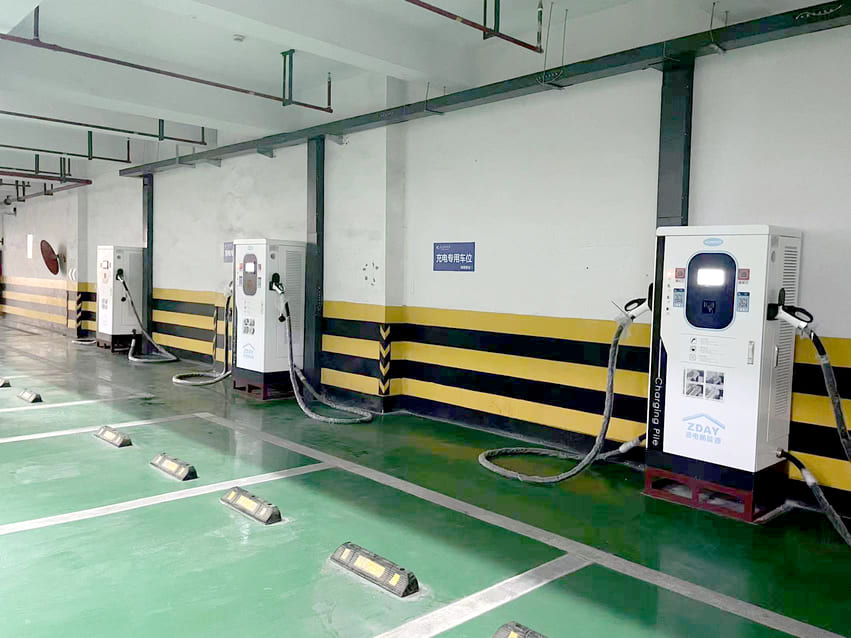How long does it take to charge an electric vehicle? From household Level 1 charger to high-speed Level 3 DC fast charging stations, each charging method has its specific application scenarios and required time, such as:
- Level 1 charger: Typically 8 hours to 12 hours. This charger is suitable for charging at home at night.
- Level 2 Charger: Typically takes about 4 to 8 hours. This is a common charging method in homes and public places and provides faster charging speeds.
- Level 3 charger (DC fast charger): Can charge the battery to about 80% in 30 minutes to 1 hour. This charging method is suitable for fast charging stations on long journeys.
Factors Affecting the Charging Time of Electric Vehicles

Electric vehicle charging time is affected by a variety of factors, including:
Charger type: The level of the charger (Level 1, Level 2, or Level 3) directly affects the charging speed. Level 1 chargers charge the slowest, while Level 3 chargers (DC fast charging) provide the fastest charging speeds.
Battery capacity: The larger the battery capacity of an electric vehicle, the longer it usually takes to charge because there is more power to charge.
Battery condition and health: The age and health of your battery can also affect charging speed. As a battery ages, its maximum capacity may decrease, affecting charging time and efficiency.
Initial charge: The time it takes to charge also depends on the remaining charge in the battery when charging begins. The lower the battery, the longer it will take to fully charge.
Charging power limitation: If the output power of the charging station or the receiving power of the electric vehicle is limited, it will also affect the charging speed. Sometimes the output power of the charging pile may not meet the maximum charging rate of the vehicle, or the vehicle’s charging system has a maximum power reception limit.
Ambient temperature: Extreme low or high temperatures can affect battery charging efficiency and speed. Low temperatures can slow chemical reactions and reduce charging speeds, while high temperatures may require additional battery cooling.
Understanding these factors that affect charging time can help electric vehicle users better plan charging time and methods to ensure that the vehicle can be charged effectively and safely.
Different Types of Charging Methods Affect Charging Time
There are different methods of charging electric vehicles, each of which has a different impact on the overall charge duration.
Level 1 charging
Level 1 charging involves charging an electric vehicle using a standard 120-volt household outlet. It usually charges slower due to lower voltage and current output.
While Level 1 charging doesn’t offer fast charging, it allows for overnight charging at home or in places where higher-power chargers are not available. On average, it takes about 8-12 hours, or even longer, to fully charge an e-bike with a Level 1 charger.
Level 2 charging
Level 2 chargers operate at a higher voltage, typically around 240 volts, and charge faster than Level 1 chargers. These chargers are commonly found in residential environments and public charging stations. The time it takes for a Level 2 charger to fully charge a car is about 4-8 hours, which is more suitable for daily commuting needs and long-distance travel.
DC fast charging
DC fast charging, also known as Level 3 charging, public fast charging stations are often equipped with DC fast chargers. DC fast charging’s hourly charge estimates are significantly higher than other methods, at about 80-100 miles per hour.
How Long Does It Take to Charge an Electric Vehicle at Home?

Charging an electric vehicle at home usually involves two charger types, namely Level 1 and Level 2 chargers. Level 1 chargers charge via a standard 120-volt household outlet. Although charging is slower, they are ideal for long overnight charging.
Fulling a battery electric vehicle (BEV) can take 40-50 hours, while a plug-in hybrid charge Car (PHEV) takes about 5-6 hours. In comparison, Level 2 chargers use 240 volts to provide faster charging, typically taking 1-2 hours to fully charge a PHEV and 4-10 hours for a BEV, making them ideal for daily commuting and faster charging needs.
Electric vehicle charging time example
| Vehicle Model | Type | Charger Type | Charging Time (Hours) |
| Nissan Leaf | BEV | Level 1 Charger | Approx. 20-24 |
| Nissan Leaf | BEV | Level 2 Charger | Approx. 4-8 |
| Chevrolet Volt | PHEV | Level 1 Charger | Approx. 10-12 |
| Chevrolet Volt | PHEV | Level 2 Charger | Approx. 4 |
| Tesla Model 3 | BEV | Level 3 Charger | Approx. 0.5 |
| Tesla Model S | BEV | Level 3 Charger | Approx. 0.5 |
| Toyota Prius Prime | PHEV | Level 1 Charger | Approx. 5.5 |
| Toyota Prius Prime | PHEV | Level 2 Charger | Approx. 2.2 |
| BMW i3 | BEV | Level 1 Charger | Approx. 15-20 |
| BMW i3 | BEV | Level 2 Charger | Approx. 3-4 |
Tips for Efficient Home Charging
To optimize the efficiency of home charging, there are several tips that EV owners can consider implementing:
Scheduled Charging: Take advantage of programmable features on the vehicle or charger to schedule charging during off-peak hours when electricity rates may be lower.
Charger Installation: Ensure that the home charger is installed by a qualified professional following manufacturer guidelines for optimal performance and safety.
Battery Maintenance: Regularly monitor the battery’s health and follow recommended maintenance practices provided by the vehicle manufacturer.
Energy Management: Consider integrating renewable energy sources such as solar panels into the home’s energy system to reduce reliance on grid power for charging.
By implementing these tips, EV owners can maximize the efficiency of their home charging setup while minimizing overall charging time.
Summarize
Learn that charging time for electric vehicles is affected by a variety of factors, including battery capacity, power source compatibility, and charger type. Understanding these factors enables EV owners to make informed decisions about their preferred charging strategy based on their driving habits and lifestyle requirements.
To buy a suitable charger for your electric car, please consult our MOREDAY website, we offer many types of chargers and a variety of solar accessories.
FAQ
1. What is the fastest way to charge an electric vehicle?
The fastest way to charge an electric vehicle is through DC fast charging. Public fast charging stations equipped with DC fast chargers can charge an electric vehicle’s battery to 80% in about 20 minutes to an hour. The estimated range per hour with DC fast charging is around 80-100 miles.
2. Can I charge my electric vehicle in the rain?
Yes, it is safe to charge electric vehicles on rainy days. These chargers come with safety features and an insulated design to protect them from environmental factors such as rain. However, EV owners must ensure that charging cables and connectors are in good condition and are not damaged or frayed, which could compromise their ability to be waterproof.
3. How often should I charge my electric vehicle?
Generally speaking, if your daily driving distance is short, you can choose to charge through a level 2 charger at home every night to ensure that the battery is fully charged every morning. For battery health, it is ideal to avoid complete depletion of battery power and maintain battery power between 20% and 80%.
It should be fully charged before driving long distances and replenished using fast charging stations along the way. In general, the charging frequency will depend on your specific needs and vehicle usage, and charging every day is usually not necessary.
Related reading: Level 1 Vs Level 2 Vs Level 3 EV Charger


